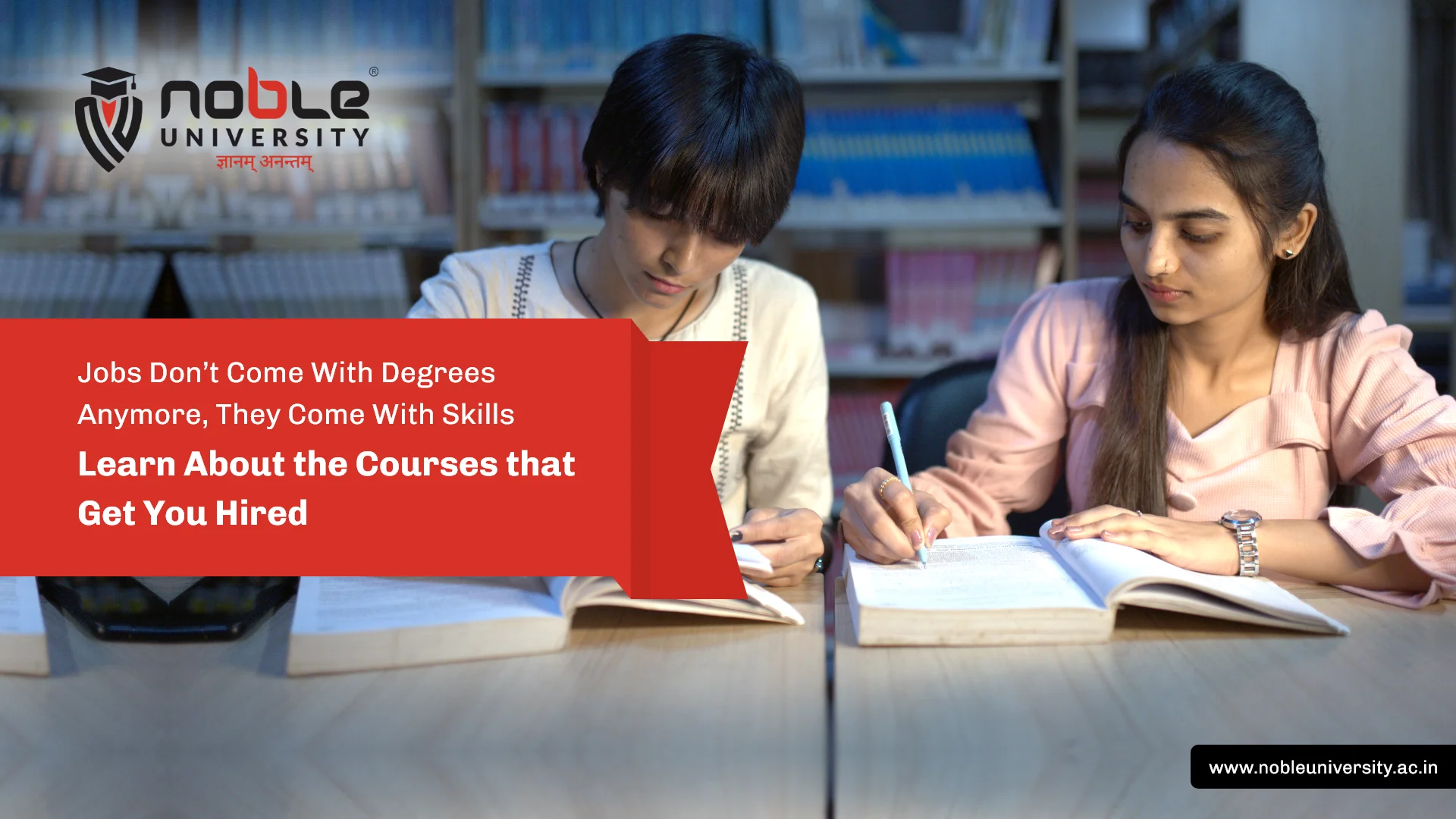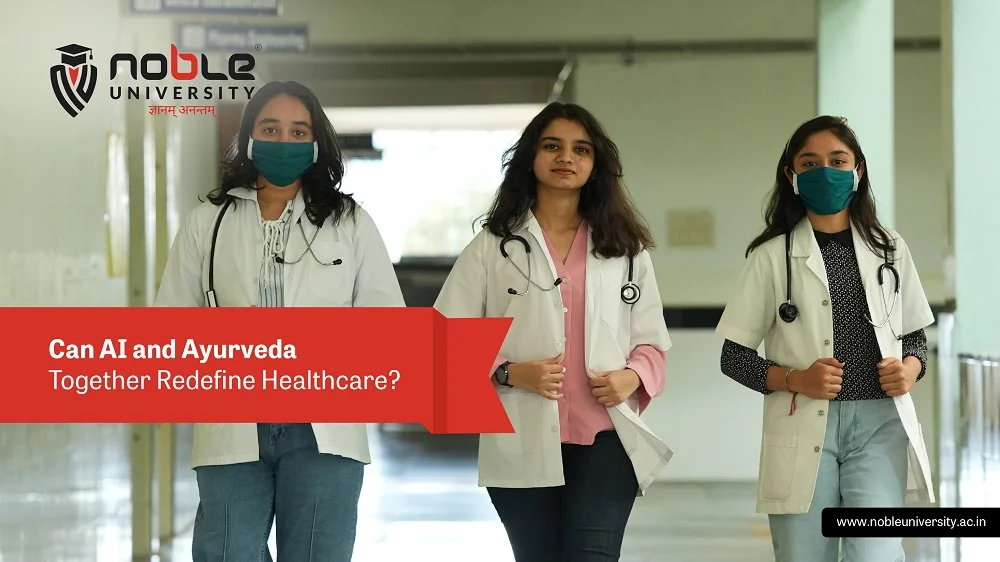
What If Ayurveda Met AI? Exploring Unlikely Interdisciplinary Collaborations at Noble
What happens when wisdom that has been guiding human health for over 5,000 years meets the cutting-edge technology shaping our future? At first glance, Ayurveda and Artificial Intelligence (AI) might seem like worlds apart; one deeply rooted in tradition, the other fueled by algorithms and data.
Yet, today’s world thrives on such unlikely pairings. Interdisciplinary education is no longer a luxury; it is the foundation of preparing students for careers that don’t yet exist. The conversation is no longer about whether these worlds can meet, but about how powerfully they can work together. This unusual possibility is discussed further in this blog.
Why Interdisciplinary Education Matters
Ayurveda has always viewed the human body as a comprehensive system, emphasising prevention, balance, and long-term well-being. On the other hand, AI excels at precision scanning patterns, predicting outcomes, and finding solutions more efficiently than the human brain alone can manage.
Imagine what could unfold if Ayurveda’s holistic approach combined with AI’s sharp analytical abilities: health treatments that are deeply personal yet globally scalable, or research that validates ancient practices with modern science. At Noble University, students are encouraged to dream of such futures.
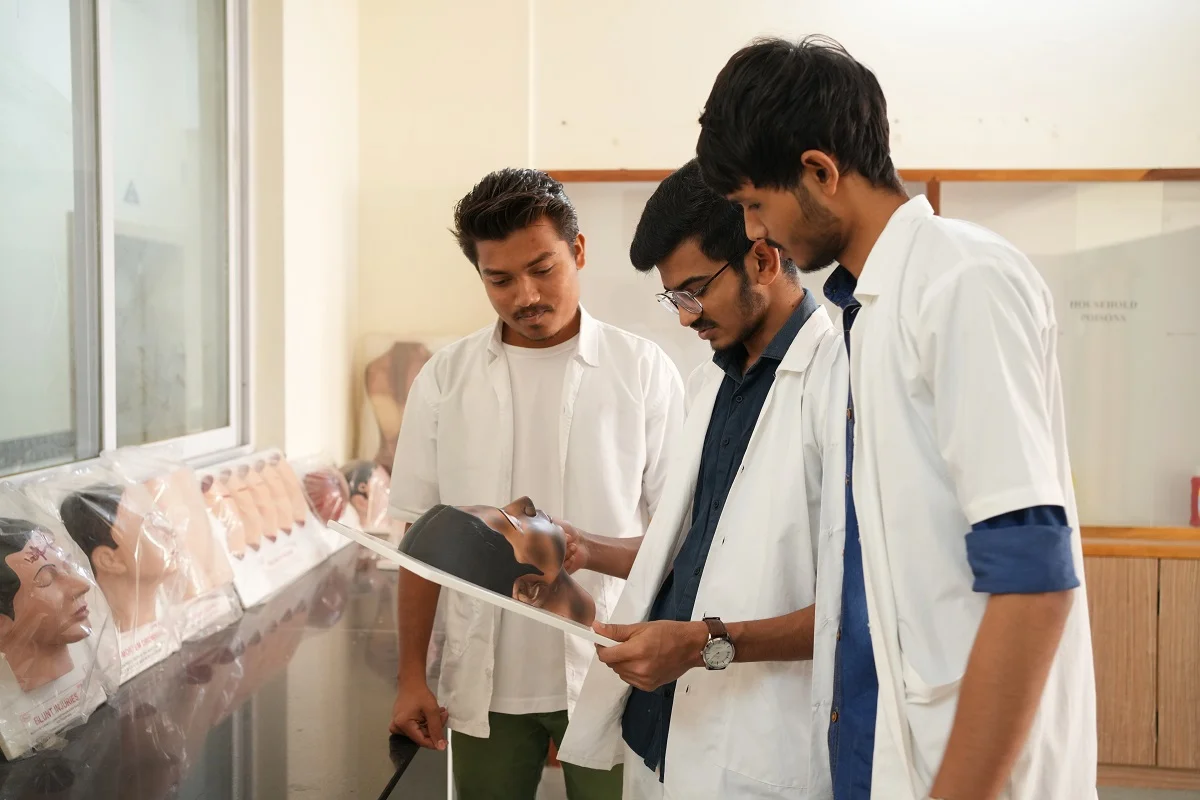
Education today is no longer confined to rigid silos. The world students are stepping into is dynamic, fast-changing, and increasingly complex. Employers don’t just want specialists; they want thinkers who can adapt, connect ideas across domains, and solve problems in innovative ways. This is where interdisciplinary education becomes not just beneficial, but essential.
1. It Expands Career Possibilities
A student trained in Ayurveda may traditionally have seen a career only in clinical practice. But if that same student also understands AI and digital tools, their scope expands, from healthcare analytics to wellness startups or even global research collaborations. Interdisciplinary knowledge ensures students are not limited to one narrow career path.
2. It Encourages Innovation
Some of the most groundbreaking solutions in today’s world emerge at the crossroads of disciplines. Think of wearable health devices that combine medicine, technology, and design. When Ayurveda students learn to integrate AI tools into their practice, they are not just following tradition; they are creating new models of healthcare that the world has never seen before.
3. It Builds Adaptability for the Future
Industries evolve, and so do careers. A student who studies only one field may struggle when their industry changes. But a student who learns how to connect knowledge across domains becomes adaptable, resilient, and future-ready. Interdisciplinary education makes students flexible learners, a skill more valuable than any single degree.
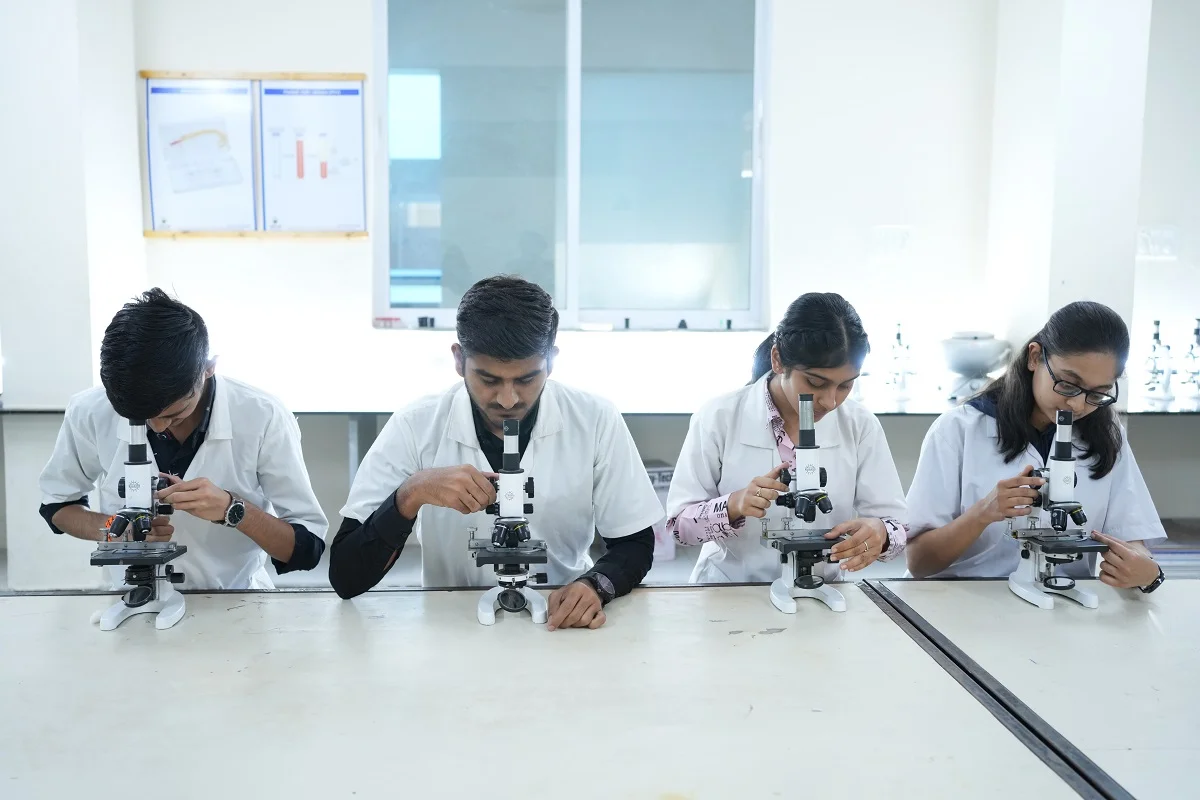
Ayurveda in the Modern World
Globally, Ayurveda is finding new respect. From wellness retreats in Europe to integrative medicine practices in the U.S., its ancient principles are making a comeback. But in India, where it was born, Ayurveda is not just a heritage; it’s an academic and professional pursuit. At Noble’s Bachelor of Ayurveda Medicine and Surgery (BAMS) program, students are trained to be practitioners who honour tradition while embracing innovation.
This is not Ayurveda frozen in time; it is Ayurveda stepping confidently into the 21st century, where Ayurveda holds power to shape healthcare, inspire research, and prepare a new generation of healers who can bridge ancient wisdom with modern science.
Where AI Can Complement Ayurveda
The wisdom of Ayurveda has stood the test of time, but to stay relevant in today’s world, it needs modern support. Here are some ways in which AI can help unlock new possibilities in Ayurveda.
1. Personalised Healing Plans
Every individual is unique, and Ayurveda has always acknowledged that. Now, AI can amplify this by analysing personal health records, genetics, and lifestyle data to suggest precise, Ayurveda-inspired treatment paths that are tailored to the individual.
2. Digitising Ancient Texts
Texts like the Charaka Samhita hold centuries of medical wisdom but remain inaccessible to many. AI can help digitise, translate, and interpret these works, making them available to students, researchers, and practitioners worldwide. Noble’s Faculty of Ayurveda workshop on Charaka Samhita reflects how this effort is already underway.
3. Research and Evidence-Based Validation
Sceptics often dismiss Ayurveda for lacking modern scientific validation. But with AI-powered simulations, big data analysis, and machine learning models, ancient remedies can be tested, validated, and presented in ways that resonate with contemporary medicine. This doesn’t dilute Ayurveda; it strengthens it.
Challenges of Combining Two Worlds
Of course, blending Ayurveda and AI is not without its hurdles. Purists may resist, fearing technology could oversimplify or misrepresent centuries of knowledge. Ethical concerns also emerge about who controls sensitive health data and how it can be used responsibly. And there’s always the risk of treating AI as a substitute for human intuition, when in truth, it is only an assistant. Yet, challenges are not reasons to stop; they are signposts urging us to move forward carefully, thoughtfully, and ethically.
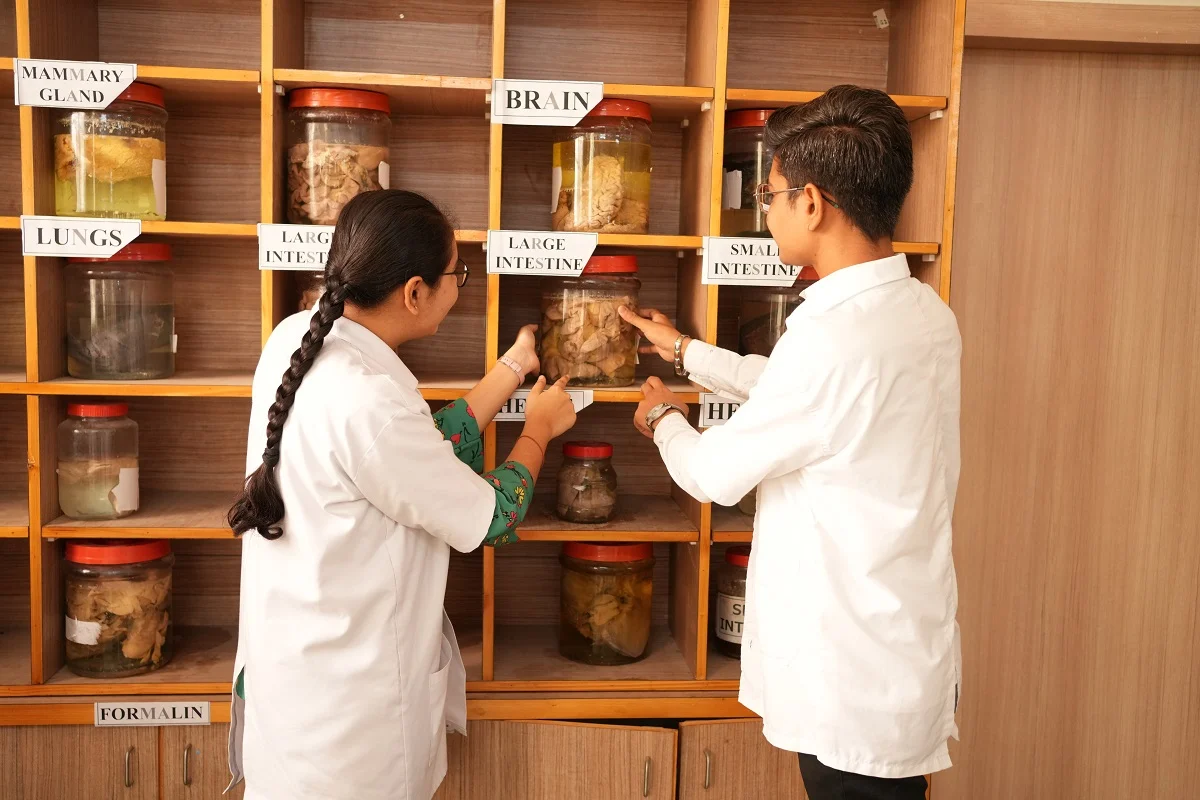
The Noble Vision: Where Tradition Meets Tomorrow
At Noble University, the Faculty of Ayurveda is not confined to tradition, nor is AI restricted to computer labs. Instead, these fields are encouraged to converse, collaborate, and create through workshops, research, and interdisciplinary learning. The result is graduates who are not only healers but also innovators, who are ready to bridge ancient wisdom with modern technology.
If you are looking for a place where education goes beyond textbooks and prepares you for a future shaped by both heritage and innovation, Noble University is the right choice.
With flexible scholarship opportunities and a well-structured admissions program, the university ensures that deserving students can pursue their aspirations without barriers. This is your chance to join a community that values knowledge and creativity.
Start your journey at Noble University today.
Start your journey at Noble University today.

FAQS
AI can be used to analyse patient data, personalise Ayurvedic treatment plans, and validate traditional remedies through scientific simulations. It helps students bridge classical knowledge with modern research methods.
The combination allows Ayurveda to be more accessible, precise, and evidence-based. It opens up new opportunities for innovation in healthcare and wellness.
Yes, AI is helping traditional systems like Ayurveda gain global recognition by providing data-driven validation and accessibility. It modernises ancient practices without taking away their essence.
While they are different disciplines, universities like Noble encourage students to explore both fields through workshops, research projects, and interdisciplinary learning. This prepares them for careers that merge traditional wisdom with modern technology.
Universities promote collaborations through joint workshops, digitisation projects, and integrated research opportunities. This creates platforms for students to experiment, innovate, and learn beyond single disciplines.
AI helps digitise classical texts, simulate remedies, and provide personalised learning experiences for students. It ensures traditional medicine stays relevant in the modern academic and healthcare landscape.
Yes, students can explore careers in healthcare analytics, integrative medicine, wellness startups, and research. This unique combination opens doors to both national and global opportunities.
Noble University fosters collaboration through research-driven teaching, interdisciplinary workshops, and modern labs. Students are encouraged to connect tradition with technology, making their learning both innovative and practical.


